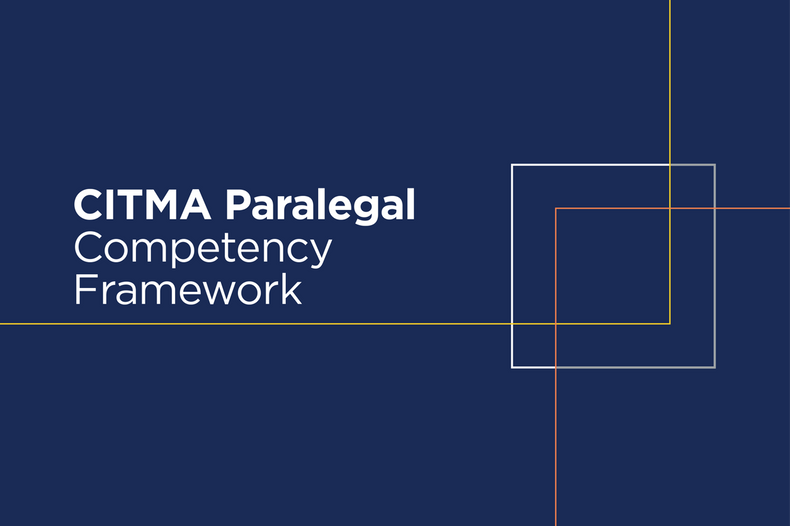CITMA launches updated Paralegal Competency Framework
We have published an updated version of the CITMA Paralegal Competency Framework, which outlines the key skill sets of a CITMA Paralegal.

The framework, which was originally launched five years ago, has been updated to include advanced knowledge and understanding for certain skill sets, as well as advanced competences.
These will cover skills to support a CITMA Paralegal in developing core skills in filing, searching and watching, as well as improving their leadership and management skills. This will be most relevant to those with more than five years’ experience after passing the CITMA Paralegal Course.
Click here to download the framework document
The framework acts as a guide for all CITMA Paralegals to support them in their learning, training and development. As well as more advanced skills, it covers technical skills, relating to understanding the management of trade marks and designs, and more general skills such as communication, professional development and ethics.
As before, the framework is not intended to be prescriptive and therefore, not all CITMA Paralegals will necessarily undertake all the areas set out in the document. Members can decide which areas will be most beneficial in supporting their working environment.
We acknowledge that for CITMA Paralegals, the nature of their business and the type of clients they serve will very much determine their areas of focus.
The framework can also be useful in supporting senior staff and HR departments to map out progression routes for employees and identify the skills and knowledge gaps across their firms.
For those experienced CITMA Paralegals who might be thinking about becoming a Chartered Trade Mark Attorney in the future, it may be useful to view the competency framework published by IPReg for Registered Trade Mark Attorneys alongside the CITMA Paralegal competency framework.
Information about becoming a Chartered Trade Mark Attorney can be found here.

